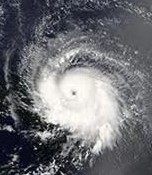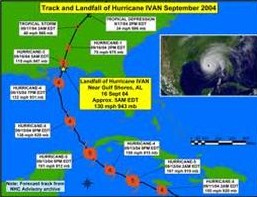 I find people’s reaction to preparedness interesting. What a person’s great grandparents did 75 years ago is now looked upon as craziness. If one “puts back” (stockpiles), or “puts up” (cans meat or vegetables) then it somehow equates to over-reaction, or I’ve even heard the term- hording. How did we get here?!
I find people’s reaction to preparedness interesting. What a person’s great grandparents did 75 years ago is now looked upon as craziness. If one “puts back” (stockpiles), or “puts up” (cans meat or vegetables) then it somehow equates to over-reaction, or I’ve even heard the term- hording. How did we get here?!
Today, if I have the money, I can go to the store and buy… whatever. In fact, I can buy multiples of whatever and when I store them I am stockpiling; I am putting back needed supplies for a time when I might need them for myself or for someone else. When I buy a whatever while there is enough for anyone who wants one and has the money to buy it, then it’s called stockpiling. If, after a catastrophe, I go to the store where there are only 10 whatevers and I buy all 10 of them even though I have no immediate use for them, this is called hording. The misconception lies in timing and attitude.
To advance my point let me do non-preppers a favor and create a scenario that HAS happened and WILL happen given the correct set of circumstances:
There is a married guy named Jim who has a wife and a newborn baby. Like many of us Jim lives paycheck to paycheck but has some disposable income. Jim watches the news and tracks some of the world situations; war, economic, etc. and yet he doesn’t see any need to store food or water, or anything else for a time when it might be needed.
In the same neighborhood- maybe next door -lives Sue who is a married mother of two toddlers. She has about the same amount of disposable income and she and her husband also keep track of world events. Sue sees possible economic problems and has devised a strategy to provide for the needs of her family should things go pear shaped. As a result, she has chosen to spend some of her income buying water, extra canned foods to stock her pantry, and even some large amounts of beans and rice for a possible “crazy” emergency. Oh did I mention that Jim and Sue live on the Gulf Coast so even without the  possible economic problems there is reason enough to stockpile some supplies.
possible economic problems there is reason enough to stockpile some supplies.
Well, in the course of time that inevitable Category 5 hurricane arrives one summer and turns out the lights for nearly two weeks but because Sue has the extra food, water, camp stove and fuel for it, they go on with their lives and with little change. Jim however had most of his two week supply of food in the refrigerator and freezer with no generator or fuel to ensure his food stays cool, and though he also has five gallons of water, a few cans of vegetables, and some boxed hamburger skillet entree mix (with no hamburger) he begins to see that there might be a problem ahead of him in a very short time, and worse, he has only a little formula for his baby. Fortunately and currently, in a normal hurricane situation, the government will be poised to help Jim with his challenges.
. I was one of those people and because I did what Sue did in the above scenario, I was not much affected.
A non-prepper might see this situation and conclude that Sue is hording and should open up her coffers and give her surplus to those who are in need, and guess what, in this scenario I might tend to agree. It is a time limited event and if Sue has enough food for her family for two weeks she should think about helping her neighbors as best she can. However, Sue should never have to sacrifice her family’s health to provide for those who made a decision not to put back food, water and supplies for themselves. It’s very easy to judge someone else’s circumstances, but what happens if Sue’s job was managing a mini-mart on the beach and now the beach isn’t there let alone the mini-mart? She may need to live off of her surplus a little longer than two weeks while she finds another job.
One might say, “But Jim didn’t know the hurricane was going to hit them!” And I would say, “Bull crap!!” Anyone who lives in this part of the country knows that if you haven’t begun to stockpile BEFORE the news reports the hurricane is  coming your way, then you begin AFTER it’s reported! Seriously, with today’s technology a tropical depression is tracked until it becomes a tropical storm, then tracked to a Cat 1 hurricane, then until it makes landfall and even then the weather man will report on the leftover rain storms that surge up into the central part of the country for several days after. The important part of this however is that from the reporting of a tropical depression until the storm makes landfall could be up to two weeks, certainly enough time to make basic preparations. If you’re even halfway smart you will keep a few things stored all year round, like a camp stove and the appropriate fuel.
coming your way, then you begin AFTER it’s reported! Seriously, with today’s technology a tropical depression is tracked until it becomes a tropical storm, then tracked to a Cat 1 hurricane, then until it makes landfall and even then the weather man will report on the leftover rain storms that surge up into the central part of the country for several days after. The important part of this however is that from the reporting of a tropical depression until the storm makes landfall could be up to two weeks, certainly enough time to make basic preparations. If you’re even halfway smart you will keep a few things stored all year round, like a camp stove and the appropriate fuel.
When did we begin to lose this habit? When did we begin to decide that we didn’t really have to provide for our families; that we really weren’t accountable for ourselves, our wife and our kids? I mean, it’s such a no-brainer that when May roles around you could easily buy a couple of extra cans of condensed soup, a can of SPAM, or a camp lantern and put them back. With a can of beef and gravy and a couple cans of mixed vegetables you can make a quick, “Hurricane Stew,” or add a can of chicken to your favorite boxed ‘chicken helper.’ What I’m saying is that it’s so incredibly easy to just put back a little at a time.
My guess is that our lack of preparedness occurred around the time that the government stepped in with the welfare system, but maybe it was before that. I mean, it was SO easy to let the government provide for our basic needs so perhaps we had already turned away from our personal accountability prior to the “New Deal.”
Before you rile up the village to grab their pitch forks and march off to catch and burn the monster (me) let me say that I am all about helping people that can’t help themselves. These people include children, the sick and infirm, and the elderly, who have no family to take care of them, but additionally if anyone was hungry and it was in my power to feed them, and I wasn’t taking the food from the mouths of my own family, then I would see it as a moral obligation to help them.
We have come so far away from the idea of providing for our self and our family that now when we hear about someone being personally accountable we smile knowingly… or is it cynically? We think that they are the crazy people! And, because each family is not self-supporting then the community is not ready and it cannot fill in the gaps when a family needs help.
 I think I see some of the issue, at least in part. I think that we are short sighted, only seeing this whole preparedness thing from the ‘preparing’ side instead of the ‘prepared’ side. I’d like to think that if we looked 5 years down the timeline of most preppers we would probably see that many of them have stockpiled enough food for their family for a year, as well as little extra for charity. We would see that they are making fewer large purchase, perhaps only enough to replace the foods that they’ve consumed in the previous month because they are rotating their pantry food. No big purchases of ammunition, bags of beans or grain, or freeze dried food- the “crazy stuff” -because these were already bought and stored. These preppers may be located in the same house they were in 5 years previous, or they may have moved out the edge of town where they have room for a garden and a few chickens, or they may have a residence completely out in the country were they are raising larger livestock and canning their own vegetables and meats.
I think I see some of the issue, at least in part. I think that we are short sighted, only seeing this whole preparedness thing from the ‘preparing’ side instead of the ‘prepared’ side. I’d like to think that if we looked 5 years down the timeline of most preppers we would probably see that many of them have stockpiled enough food for their family for a year, as well as little extra for charity. We would see that they are making fewer large purchase, perhaps only enough to replace the foods that they’ve consumed in the previous month because they are rotating their pantry food. No big purchases of ammunition, bags of beans or grain, or freeze dried food- the “crazy stuff” -because these were already bought and stored. These preppers may be located in the same house they were in 5 years previous, or they may have moved out the edge of town where they have room for a garden and a few chickens, or they may have a residence completely out in the country were they are raising larger livestock and canning their own vegetables and meats.
If you were to ask these “prepared” preppers about their decisions they might say, “That’s just how we live.” Looking from the other side, the prepared side, you would just see normal people living normal lives. They have already put their money where their mouths are and taken a step backwards towards past generations to whom preparing for the unknown was a normal part of life and in my way of thinking this is “normal.”
Respects,
Anthony Faircloth